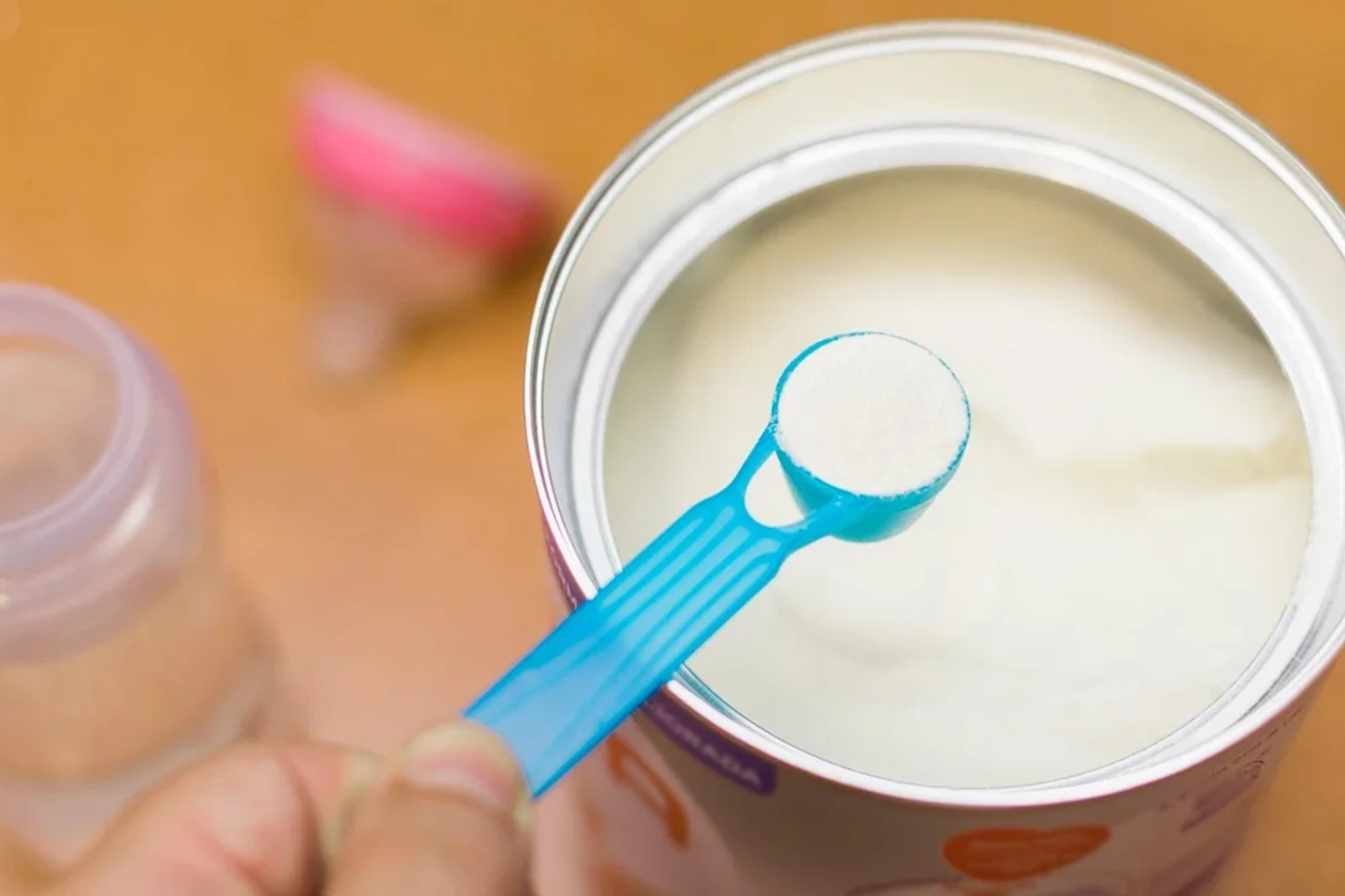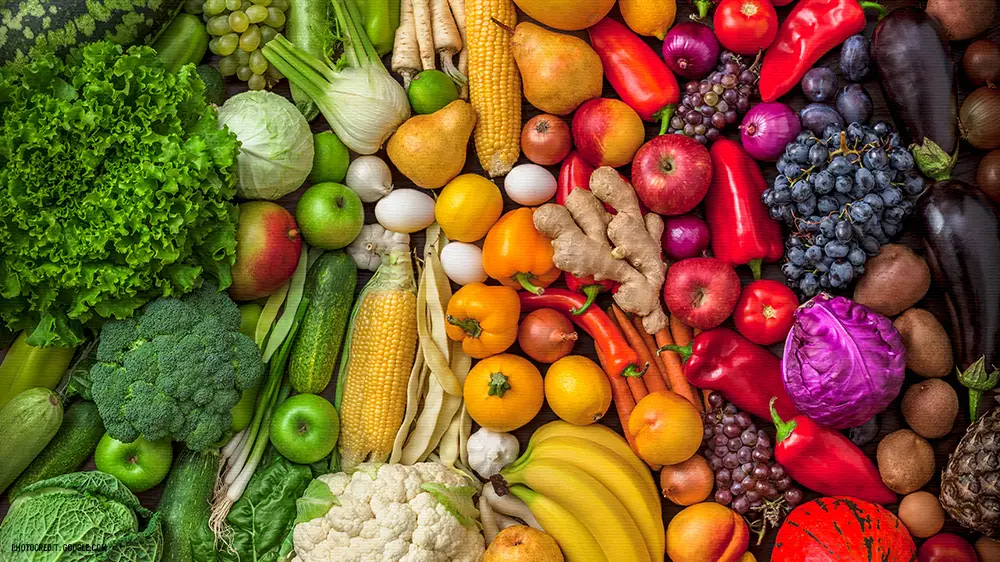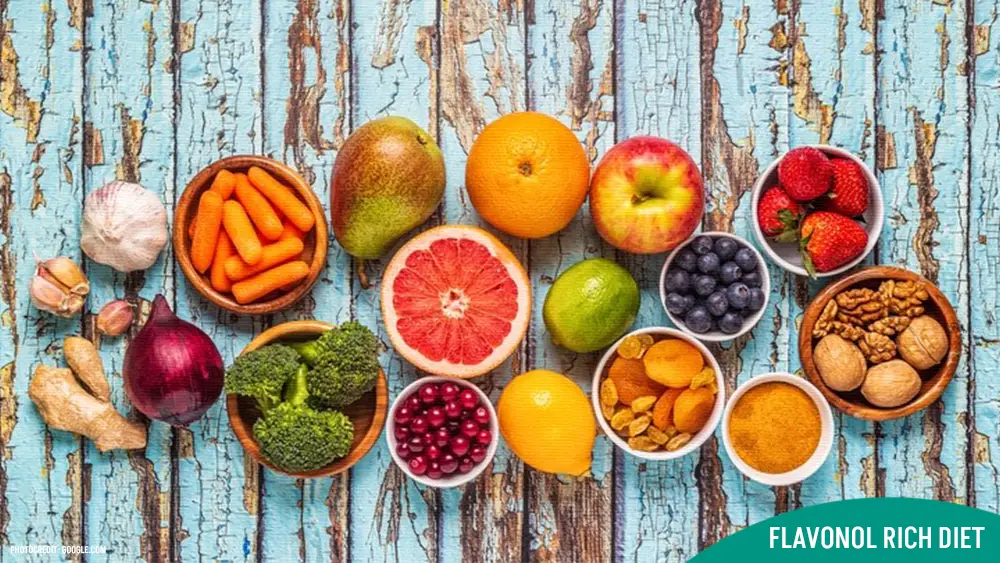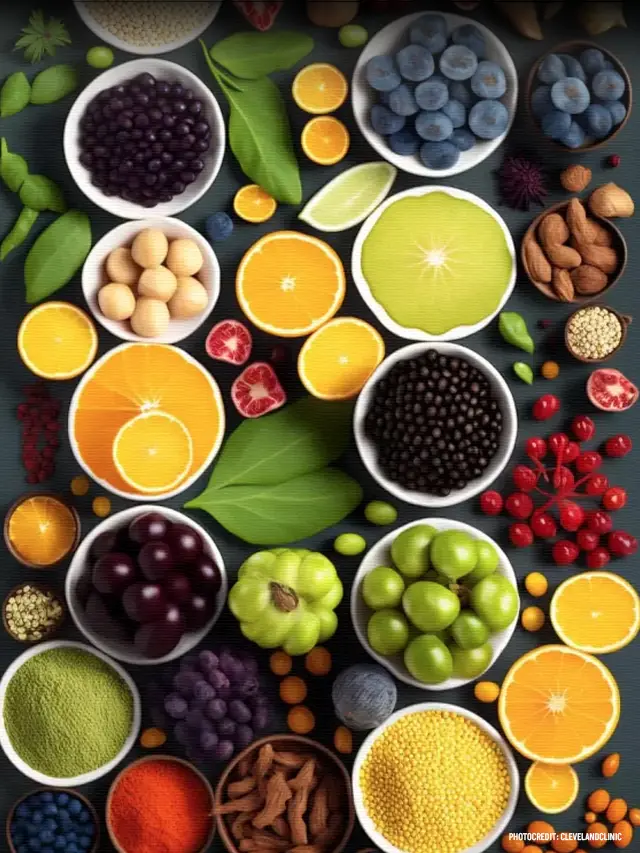
HEALTH BLOG
Exploring the Benefits of Flavonol-Rich Diet: The Flavor of Health
-
Rahul Priydarss
In recent years, there has been a growing interest in the role of diet in promoting health and preventing diseases. Among various dietary components, flavonols have gained attention for their potential health benefits. In this article, we’ll delve into the concept of a flavonol-rich diet, exploring its benefits, food sources, and practical tips for incorporating it into your lifestyle.
What Are Flavonols?:
Flavonols belong to a class of plant-derived compounds known as flavonoids. They are abundant in various fruits, vegetables, herbs, and beverages such as tea and red wine. Quercetin, kaempferol, and myricetin are some common types of flavonols found in foods. These compounds are renowned for their antioxidant properties and their ability to support overall health.

Table of Contents
Health Benefits of Flavonols-Rich Diet:
Flavonols-Rich Diet are a type of plant-derived compound belonging to the flavonoid family, known for their various health benefits. These compounds are commonly found in fruits, vegetables, teas, and red wine. Here are some of the potential health benefits associated with flavonols.
Antioxidant Properties: Flavonols possess strong antioxidant properties, which help in neutralizing harmful free radicals in the body. By reducing oxidative stress, flavonols may contribute to lowering the risk of chronic diseases such as heart disease, cancer, and neurodegenerative disorders.
Heart Health: Studies suggest that regular consumption of foods rich in flavonols may help improve cardiovascular health. Flavonols have been associated with reducing inflammation, improving blood flow, lowering blood pressure, and reducing the risk of blood clot formation, all of which contribute to a healthier heart.
Brain Function: Flavonols have shown promise in supporting cognitive function and brain health. Research indicates that these compounds may help enhance memory, learning, and overall cognitive performance, as well as reduce the risk of age-related cognitive decline and neurodegenerative diseases like Alzheimer’s.
Anti-inflammatory Effects: Flavonols possess anti-inflammatory properties, which can help reduce inflammation throughout the body. Chronic inflammation is linked to various diseases, including arthritis, diabetes, and certain types of cancer. By combating inflammation, flavonols may help mitigate the risk of these conditions.
Skin Protection: Flavonols may offer benefits for skin health and protection. They have been found to help protect the skin from damage caused by UV radiation, pollution, and other environmental stressors. Additionally, flavonols may contribute to the maintenance of healthy skin by promoting collagen synthesis and improving skin elasticity.
Improved Blood Sugar Regulation: Some research suggests that flavonols may help improve insulin sensitivity and regulate blood sugar levels. This could be beneficial for individuals at risk of or managing diabetes, as well as aiding in weight management and reducing the risk of complications associated with uncontrolled blood sugar.
Cancer Prevention: While more research is needed, some studies have suggested that flavonols may have anti-cancer properties. These compounds may help inhibit the growth of cancer cells, induce apoptosis (cell death) in cancer cells, and prevent the formation of tumors. However, further investigation is required to fully understand the mechanisms and potential applications in cancer prevention and treatment.
Food Sources of Flavonols-Rich Diet:
Flavonols-Rich Diet are naturally occurring compounds found in a variety of plant-based foods. Here are some common food sources rich in flavonols.
Fruits:
- Citrus fruits: Oranges, grapefruits, lemons, and limes.
- Berries: Blueberries, strawberries, raspberries, blackberries, and cranberries.
- Apples
- Grapes
Vegetables:
- Onions
- Kale
- Spinach
- Broccoli
- Tomatoes
- Bell peppers
- Brussels sprouts
Legumes:
- Soybeans
- Lentils
- Chickpeas
Herbs and Spices:
- Parsley
- Dill
- Capers
Nuts and Seeds:
- Almonds
- Walnuts
- Pecans
Beverages:
- Green tea and black tea are particularly rich in flavonols.
- Red wine: Especially varieties like Cabernet Sauvignon and Pinot Noir.
Other Sources:
- Dark chocolate and cocoa products (with higher cocoa content)
- Quinoa

How to Include Flavonol-Rich Diet:
Incorporating flavonol-rich diet can be both delicious and beneficial for your health. Here are some tips on how to include these foods in your meals and snacks.
Start Your Day with Berries: Add a handful of berries such as blueberries, strawberries, or raspberries to your breakfast. You can sprinkle them over oatmeal, yogurt, or cereal for a nutritious and flavorful start to your day.
Snack on Nuts and Dark Chocolate: Keep a mix of nuts like almonds, walnuts, and pecans on hand for a convenient and satisfying snack. Pair them with a square or two of dark chocolate (with high cocoa content) for a delicious and antioxidant-rich treat.
Sip on Tea: Enjoy a cup of green tea or black tea throughout the day. These teas are excellent sources of flavonols and can be enjoyed hot or cold. You can also experiment with different flavors by adding lemon, mint, or honey.
Add Leafy Greens to Salads and Smoothies: Incorporate flavonol-rich vegetables like kale, spinach, and broccoli into your salads and smoothies. These greens not only provide essential nutrients but also add a vibrant color and fresh flavor to your meals.
Cook with Onions and Garlic: Use onions and garlic generously in your cooking. They not only add depth of flavor to dishes but also contribute to your flavonol intake. Saute them as a base for soups, stews, stir-fries, and pasta sauces.
Include Citrus Fruits in Your Meals: Incorporate citrus fruits like oranges, grapefruits, and lemons into your meals and snacks. Squeeze fresh lemon juice over salads, seafood, or vegetables, or enjoy a refreshing citrus fruit salad for dessert.
Experiment with Herbs and Spices: Use herbs and spices like parsley, dill, and capers to season your dishes. Sprinkle fresh herbs over salads, soups, and grilled vegetables, or incorporate them into marinades and dressings for added flavor and nutritional benefits.
Indulge in Red Wine in Moderation: Enjoy a glass of red wine with dinner occasionally, as it contains flavonols like quercetin and resveratrol. However, remember to drink in moderation and consult with your healthcare provider if you have any health concerns.
Daily Consumable Dose of Flavonols-Rich Diet:
There is no established Recommended Dietary Allowance (RDA) or Daily Value (DV) for flavonols, as there is for some essential nutrients. However, research suggests that consuming a diet rich in flavonol-containing foods is associated with various health benefits.
Here are some general dietary guidelines to help ensure an adequate intake of flavonols.
Eat a Variety of Fruits and Vegetables: Aim to include a diverse range of fruits and vegetables in your daily diet, as different plant foods contain varying amounts and types of flavonols. Berries, citrus fruits, apples, onions, kale, broccoli, and tomatoes are particularly rich sources.
Choose Whole Grains and Legumes: Whole grains such as quinoa and legumes like lentils and chickpeas also contain flavonols, albeit in smaller amounts compared to fruits and vegetables. Incorporate these foods into your meals regularly to boost your overall flavonol intake.
Include Herbs, Spices, and Beverages: Herbs like parsley and dill, as well as spices such as capers, are additional sources of flavonols. Drinking tea, especially green tea and black tea, can contribute to flavonol intake as well.
Enjoy Dark Chocolate and Red Wine in Moderation: Dark chocolate with high cocoa content and red wine are also sources of flavonols, particularly flavonoids like catechins and resveratrol. However, it’s important to consume these indulgences in moderation due to their calorie and alcohol content.
Focus on Whole Foods: Emphasize whole, minimally processed foods in your diet rather than relying on supplements or isolated sources of nutrients. Whole foods provide a complex matrix of nutrients and phytochemicals that work synergistically to promote health.
FAQs about Flavonol-Rich Diet:
A1: Flavonol-rich foods are often low in calories and packed with nutrients, making them a valuable addition to weight loss diets. However, weight loss ultimately depends on various factors, including overall dietary patterns and physical activity levels.
A2: While flavonol supplements are generally considered safe for most people, individuals with certain medical conditions or allergies should exercise caution. It’s best to obtain flavonols from whole foods whenever possible.
A3: In addition to fruits and vegetables, flavonoids can also be found in beverages such as tea and red wine, as well as in cocoa products and certain nuts and seeds.
A4: To ensure an adequate intake of flavonols, aim to consume a diverse range of plant-based foods, including fruits, vegetables, herbs, and spices, daily.
A5: Flavonol-rich foods are generally safe for consumption and are associated with numerous health benefits. However, excessive intake of certain flavonol-containing foods may cause gastrointestinal discomfort in some individuals.

-Please remember, to always consult with healthcare professionals or Doctors for personalized advice related to medical conditions.
Conclusion:
Embracing a flavonol-rich diet presents a myriad of health advantages, spanning from bolstering cardiovascular health to augmenting cognitive function. By integrating a diverse array of flavonol-rich foods into your daily meals, you can optimize your nutritional intake and foster overall well-being. Revel in the vibrant hues and flavors of fruits, vegetables, and herbs as you nourish your body and savor a delectably healthy lifestyle.




